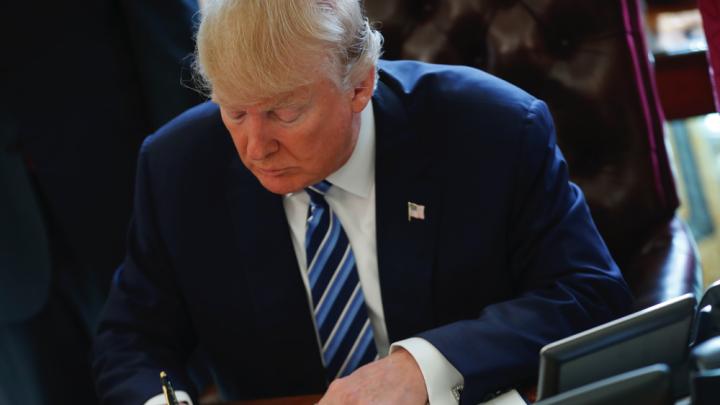Conversations about climate change are no longer limited to academics. Yesterday, members from various corners of the Harvard community gathered at the Kennedy School to listen to Washington Post journalists Juliet Eilperin and Chris Mooney talk about climate, energy, and the media in the age of Donald Trump. The HKS event was co-sponsored by the Belfer Center's Environment and Natural Resource Program and the Shorenstein Center on Media, Politics, and Public Policy. “It feels like already an age, but it’s really only been three and a half long weeks,” began Eilperin, who is the Post’s Washington bureau chief. She began her career by covering domestic policy in the early ‘90s, an era that contrasted starkly with today’s unified party control in the House and Senate, as well as the different attitudes among key players in Washington. Just yesterday, President Donald J. Trump scrapped an anti-corruption measure that forced oil and mining companies to disclose any payments to foreign governments. This was only the second time in U.S. history that the Congressional Review Act of 1996 has been invoked to give a sitting president the power to completely revoke regulations a previous administration passed in its final 60 days, she stressed. Trump’s aggressive displays of executive power have clearly been sparking unrest in the newsrooms of the capital, partly due to the seriousness of some of the decisions he is making, but also because of the shifting attitudes toward lawmaking and governing among the governing class. Eilperin admitted, “This is a moment so different from anything we’ve ever seen before in the context of energy and the environment.”
Despite the Trump administration’s hostile attitude toward the media, Eilperin admitted that the Post and other publications have been enjoying “an increased level of fluidity in communications” from this White House. “I’ve been getting encrypted drafts of executive orders in the middle of the day, just floating around…That didn’t really happen too much in the Obama White House,” she said. Trump’s distaste for established protocol shines through in off-session conversations with reporters outside of press conferences, which has made it easier to report on the White House, but also underscores a sense that journalists are in uncharted territory.
Throughout the afternoon, the speakers drew frequent parallels between George W. Bush’s presidency and Trump’s. The comparisons were most intriguing when Mooney, who reports on energy and the environment, detailed some early concerns with Trump’s policy from members of the scientific community: the suppression of scientific findings, deliberate misinformation, a hostile climate for research, potential funding cuts to bodies like the Environmental Protection Agency, and discriminatory immigration measures. Many of these concerns aren’t new, he said; they have been resurrected from the early 2000s, when the proliferation of scientific evidence of climate change was in conflict with the Bush administration’s political agenda. The Trump administration is still very young, Mooney admitted. But already, there is a discernibly defensive tone palpable throughout the scientific community as it prepares to stand up for the opportunity to conduct its work: “The Republicans get to make the policy they want to make because they won, so if that includes cutting funding for scientific research, that’s their choice to make, now.”
Among these policy decisions is Trump’s motion to revive construction on the controversial Keystone XL and Dakota Access oil pipelines. Eilperin called attention to the pipeline as especially significant for Trump as a man with a penchant for construction projects. She somberly predicted the completion of construction on the Dakota Access Pipeline: “Of course there will protests again, but will it be possible to translate these protests to broader movements, now that those protestors know they’re trying to convince Donald Trump and not Barack Obama?”
Although uncertainty and unease were laced through Mooney and Eilperin’s remarks, both emphasized that it will take constant vigilance from the scientific community and journalists to keep the public informed of the role of human activity in climate change. With cabinet nominees like Rick Perry, Trump’s pick for Energy Secretary, who previously dismissed climate concerns as a liberal hoax, it is critical that American research remain competitive and cutting-edge. It’ll be a tall order, confirmed by Eilperin’s remark, “We think we knew how Washington worked, but now we’re really in a period without any precedent.”









